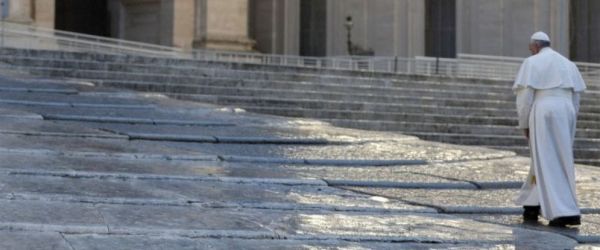Jesus’ words enkindled great scandal: he was saying that God decided to manifest himself and accomplish salvation in the weakness of human flesh. It is the mystery of the incarnation. The incarnation of God is what provoked scandal and presented an obstacle for those people — but often for us too. Indeed, Jesus affirms that the true bread of salvation, which transmits eternal life, is his very flesh; that to enter into communion with God, before observing the laws or satisfying religious precepts, it is necessary to live out a real and concrete relationship with him. Because salvation came from him, in his incarnation. This means that one must not pursue God in dreams and in images of grandeur and power, but he must be recognized in the humanity of Jesus and, as a consequence, in that of the brothers and sisters we meet on the path of life. God made himself flesh. And when we say this, in the Creed, on Christmas Day, on the day of the Annunciation, we kneel to worship this mystery of the incarnation. God made himself flesh and blood; he lowered himself to the point of becoming a man like us. He humbled himself to the extent of burdening himself with our sufferings and sin, and therefore he asks us to seek him not outside of life and history, but in relationship with Christ and with our brothers and sisters. Seeking him in life, in history, in our daily life. And this, brothers and sisters, is the road to the encounter with God: the relationship with Christ and our brothers and sisters.
[Pope Francis, Angelus 22 August 2021]












